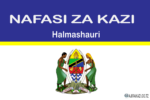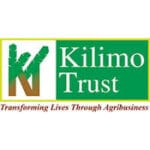AboutHistory
History is the study of change and development in society over time. The study of history enables us to understand how past human action affects the present and influences our future, and it allows us to evaluate these effects. So, history is about learning how to think about the past, which affects the present, in a disciplined way. History is a process of enquiry. Therefore, it is about asking questions of the past: What happened? When did it happen? Why did it happen then? What were the short-term and long-term results? It involves thinking critically about the stories people tell us about the past, as well as the stories that we tell ourselves.
The study of history also supports citizenship within a democracy by:
- Upholding the values of the South African Constitution and helping people to understand those values;
- Reflecting the perspectives of a broad social spectrum so that race, class, gender and the voices of ordinary
People are represented;
- Encouraging civic responsibility and responsible leadership, including raising current social and environmental concerns;
- Promoting human rights and peace by challenging prejudices that involve race, class, gender, ethnicity and xenophobia; and
- Preparing young people for local, regional, national, continental and global responsibility.
Specific Aims
The specific aims of history are to create:
- An interest in and enjoyment of the study of the past;
- Knowledge, understanding and appreciation of the past and the forces that shaped it;
- The ability to undertake a process of historical enquiry based on skills; and
- An understanding of historical concepts, including historical sources and evidence.
Skills and Concepts
Table of skills
History is a process of enquiry.
A rigorous process of enquiry enables learners to acquire the eight skills that are listed in the table below. We also show, in the table, how learners can do so.
| Skills | How skills can be achieved |
| Understand the range of sources of information available for studying the past. | By collecting information from different kinds of sources in order to provide a more complete picture. By recognising that the kind of information collected from the various sources provides different Perspectives on an event. For example, by finding as many of the following kinds of sources as possible: manuscripts (handwritten diaries, letters and notebooks), printed text (books, newspapers and websites), video or film, photographs, drawings, paintings or cartoons, and oral sources (interviews, stories and songs). |
| Extract and interpret information from a number of sources. | By selecting relevant information for the topic being investigated or from the question being answered. By making sense of the information within its context. |
| Evaluate the usefulness of sources, including Reliability, stereotyping and subjectivity. | By deciding on the reliability of the information. Reliability involves whether one can trust the sources, in terms of who created them and the purpose for which they were created. Identifying a stereotype involves recognising widely held but fixed or oversimplified (incorrect) ideas of what someone or something is like. Identifying subjectivity involves discovering the extent to which a source represents the particular view or circumstances of its author or creator. |
| Recognise that there is often more than one Perspective of a historical event. | By seeing things from more than one point of view or understanding that there can be two sides to the same story. For example, the experience of everyday life or an important event in history might be different from an ordinary person’s point of view to that of a leader. It can include being able to imagine oneself being in that time in the past and using information from that time to think like someone from the past. This is often described by the phrase ‘walking in someone else’s shoes’. (Bias is the opposite – it is one-sidedness). |
| Explain why there are different interpretations of historical events and peoples’ actions. | By analysing and weighing up the conclusions reached, or opinions about, events or people in the past. The interpretations may be those made by different historians, textbook writers, journalists, actors or producers, for example, about the same things. |
| Participate in constructive and focused debate through the careful evaluation of historical evidence. | By participating in debate about what happened (and how and why it happened). Debating involves being able to talk with others about the information from the sources, and also using the information to develop a point of view. It also involves developing formal debating skills. |
| Organise evidence to substantiate an argument, in order to create an original, coherent and balanced piece of historical writing | By using evidence to back up an argument in a systematic way. Usually this is done by writing an essay, but it may also be done by, for example, making or completing a table, designing a diagram or chart, or preparing a speech. Coherent writing has a narrative that follows a clear order and is organised in a logical way (for example, sequence, explanation, discussion). Original (independent) writing may contain a person’s own opinion or version of another writer’s opinion. It is balanced if its conclusion is not one-sided or subjective. It can also be done in a debate. |
| Engage critically with issues of heritage and public representations of the past, and conservation. | By thinking about how the past is remembered and what a person or community or country chooses to remember about the past. It also concerns the way the events from the past are portrayed in museums and monuments, and in traditions. It includes the issue of whose past is remembered and whose past has been left unrecognised or, for example, how a monument or museum could be made more inclusive. |












